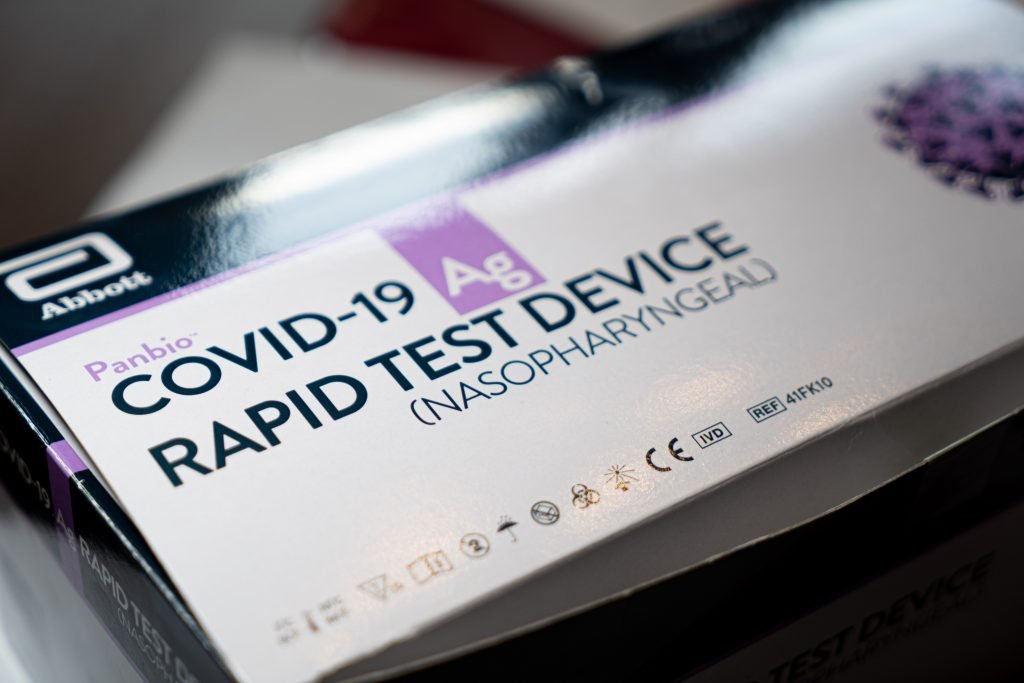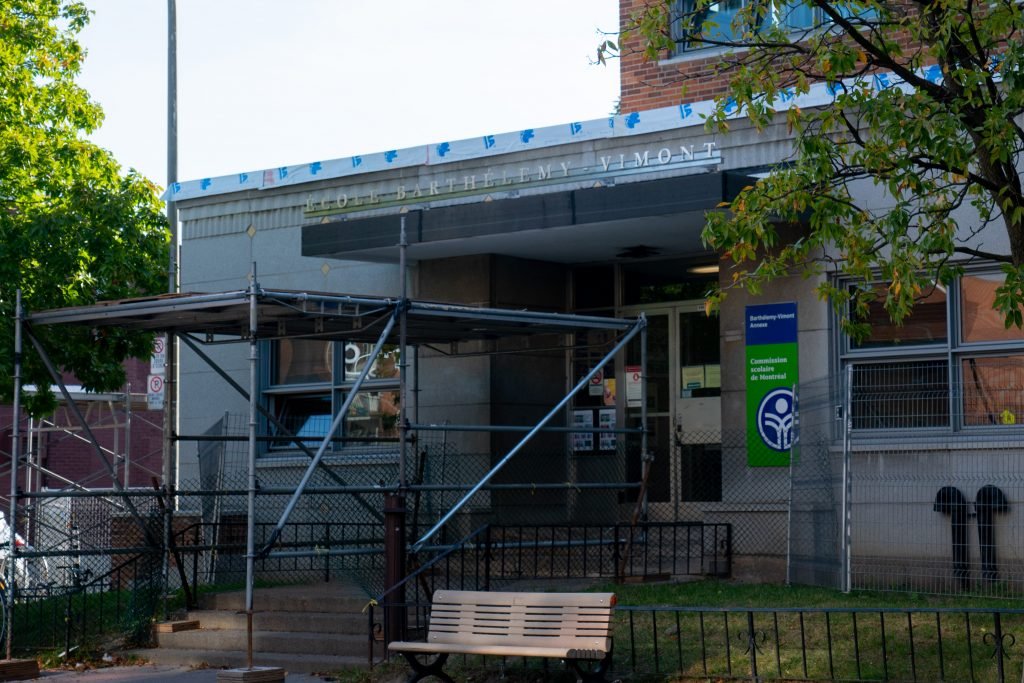Many claim a disorganized and messy rollout

The past week not only marked the first full week of school for many elementary and high school students across Parc-Ex but also the first week of the deployment of rapid COVID-19 tests in schools across the island of Montreal and Laval.
This is part of a larger public health campaign introduced by the provincial government to test symptomatic students at schools to more effectively and rapidly control classroom outbreaks and avoid school closures.
Parc-Extension is still seeing high transmission rates with children under the age of 10 who are not eligible for vaccination.
The campaign provides schools in Montréal-Nord, Saint-Michel, Parc-Extension and Chomedey with rapid COVID-19 tests to be administered by school staff with the permission of parents.
But the campaign’s rollout has been widely criticized over the past days as disorganized and incoherent. Due in part to this criticism, the provincial government has since announced it would be reorienting the rollout.
Longtime coming
Several Parc-Extension schools and community members contacted the directors of regional public health in January to ask for rapid testing to be installed in local schools.
“By making saliva tests accessible to students in Parc-Extension, it would allow for rapid screening and allow schools to act effectively and efficiently,” read the letter co-authored by the directors of Barthélemy-Vimont, Camille-Laurin and Barclay schools as well as the CLSC testing site, the Parc-Extension roundtable and borough Mayor Giulianna Fumagalli.
The regional directors of Public Health responded on Feb. 11 stating this strategy had proven to be ineffective and unnecessary. “The systematic use of rapid tests in the population, including in schools, is not able to effectively control transmission,” read their response.
The government eventually backtracked on this and it was later announced that rapid testing would be put in place by the Ministry of Education for the start of the school year. The rollout has since attracted widespread criticism.
“We didn’t have time to train the staff,”
Botched rollout
The first week of the rollout of the campaign garnered widespread criticism by schools and labour unions representing teachers, with many saying it was chaotic and disorganized.
As originally reported by La Presse, the Association montréalaise des directions d’établissement scolaire (AMDES) said the rollout was “a huge mess” and “profoundly shocking.”
AMDES President Kathleen Legault explained that the 72 participating schools only received a voluntary training video on Friday with implementation meant to start as early as Monday. “We didn’t have time to train the staff,” she added.
“In the context of a teacher shortage, where teams are already under pressure, we don’t always have enough staff available to perform these tests,” added Legault on the additional work asked of teachers with the rollout of rapid tests.
The Centre de services scolaire de Montréal (CSDM) was contacted to get their view on the matter but declined to comment choosing instead to refer us to health authorities.

Could be better
This is a feeling which has been felt by some parents with children at schools in the area. Bajit Kaur’s daughter attends Barclay School and says although she’s happy with increased testing at schools, she sees how it could have been done better.
“Actually, the situation now is going good,” stated Kaur, adding that she was happy that parents could rely on schools to do the testing and act rapidly rather than depending solely on testing at dedicated sites like the CLSC.
She nonetheless understood the concerns of educational staff as Kaur recognizes they already have a lot on their plate and may not have the time to start performing rapid tests on their students.
Government response
The provincial government responded rapidly to the backlash on Monday. François Legault named the director of the provincial vaccination campaign Daniel Paré to head the rapid testing initiatives in schools. This replaces the minister of education Jean-François Roberge who is set to be questioned by opposition MNAs on his handling of the program.
“The role of a minister is to anticipate, and Jean-François Roberge was systematically late on this,” said Québec Solidaire MNA Christine Labrie, adding that she was surprised no one had put together a more organized plan for the rollout.
So far, the provincial government has distributed 280,000 rapid tests to schools across the province with a total of 1.7 million tests still in stock. The government nonetheless clarified that this is not a replacement to tests at designated sites and should be seen as complementary.









